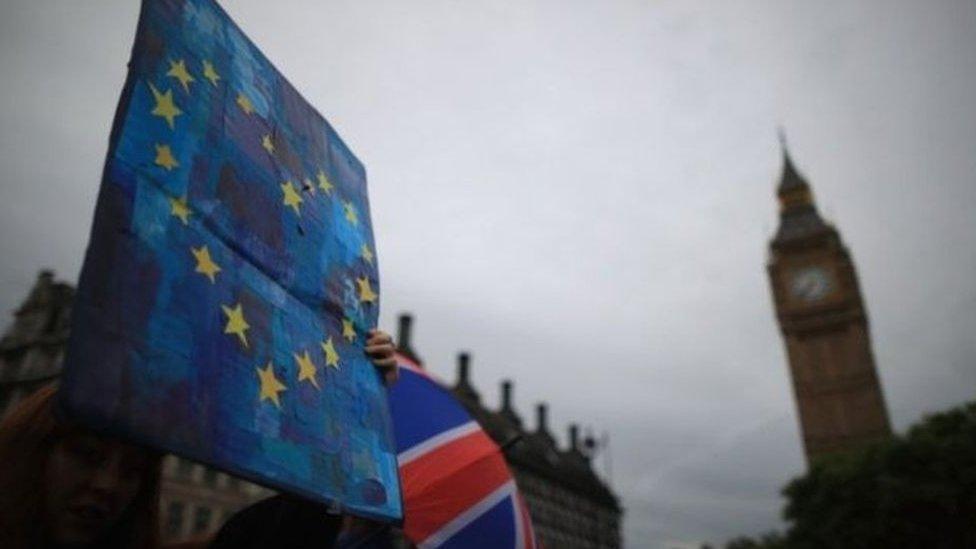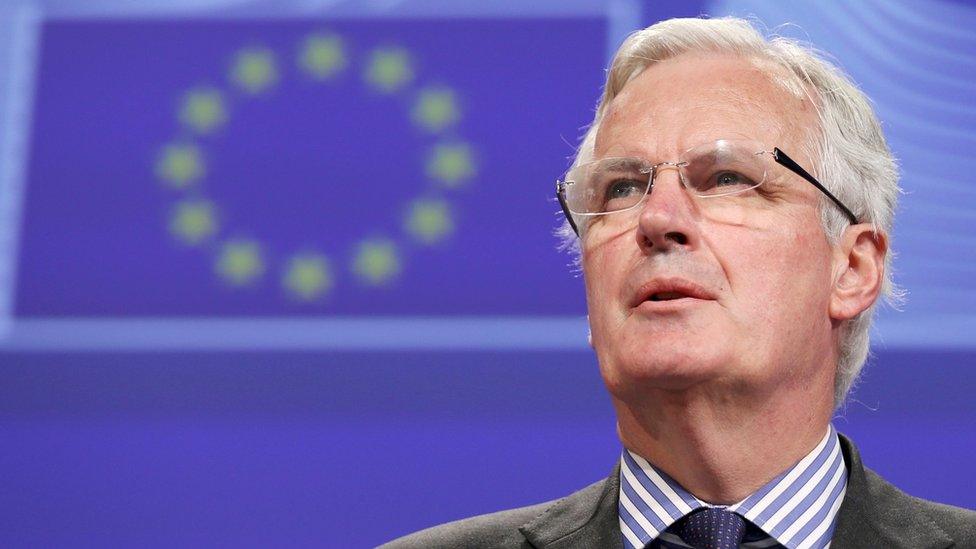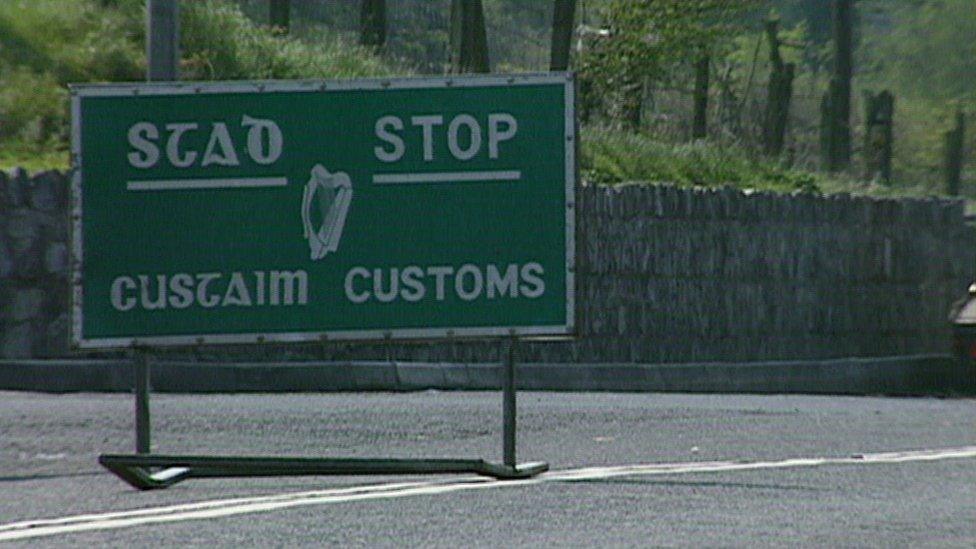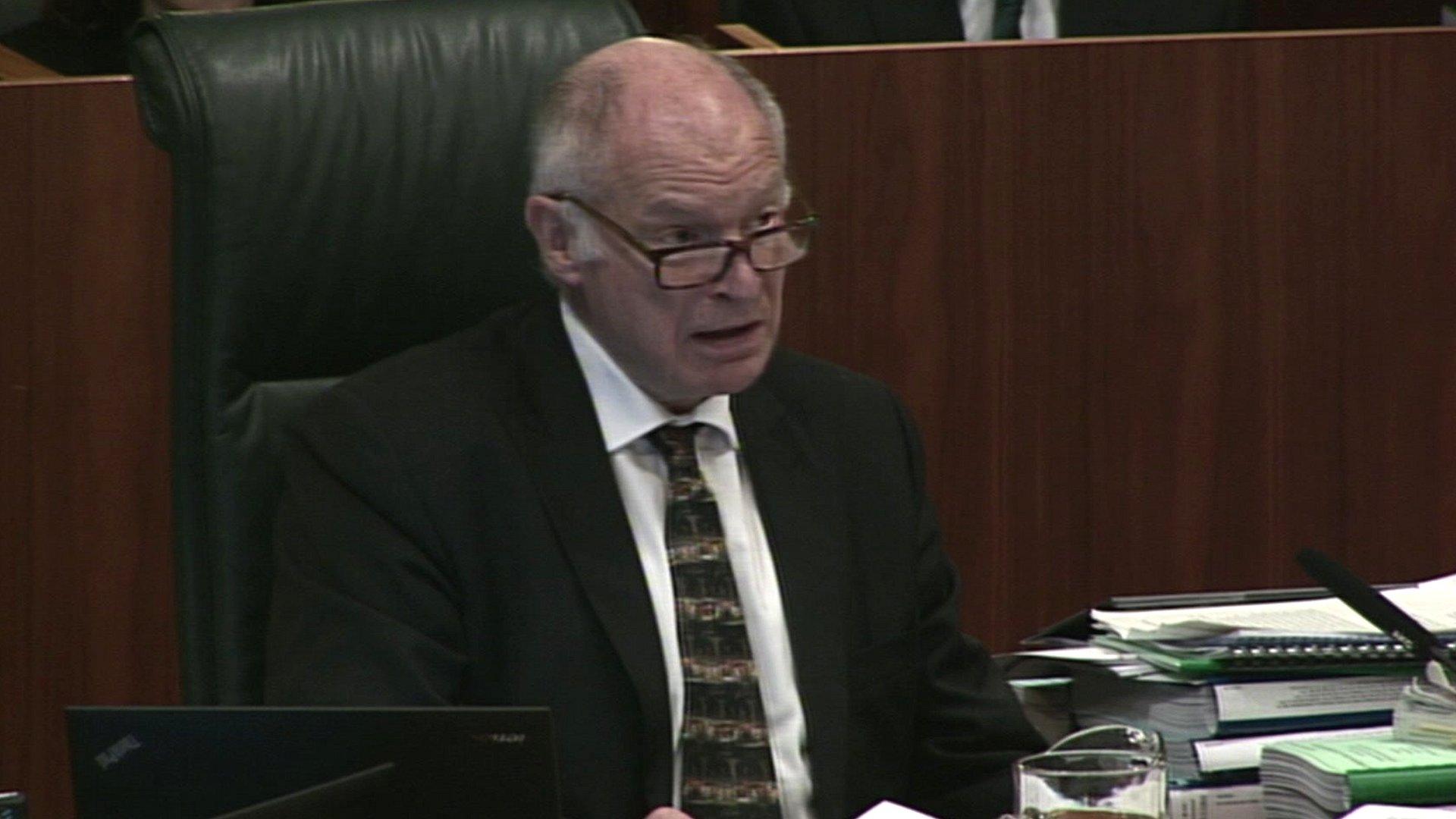Brexit: NI Assembly 'should have power over freedom of movement'
- Published

The Lords committee said a treaty should be agreed between the UK and Ireland to protect trade
The power to grant or deny freedom of movement to EU nationals in Northern Ireland should be devolved to Stormont following Brexit, peers have urged.
The House of Lords EU Committee said the power would be contained in a treaty between the UK and Ireland, subject to approval from Brussels.
The peers stressed that trade between the countries must be safeguarded.
Irish and UK citizens should continue to have freedom of movement in the two countries, they also said.
The UK plans to trigger the EU exit procedure - Article 50 - by 31 March.
Peers warned that if the government and the EU institutions failed to pay enough attention to the consequences of Brexit for Ireland, north and south, they risked undermining "the efforts of all those who have worked so hard for peace and good relations across these islands".
They said: "The key aspects of that agreement should include... providing the Northern Ireland Executive with the right to make decisions about the free movement of EU nationals within its jurisdiction."
The EU is reluctant to grant the UK free trading rights if restrictions are imposed on the movements of its citizens.
The UK's only European land border is between Northern Ireland and the Republic and the committee said Brexit was a "huge challenge" for Ireland.
The report called for continuation of the open land border between the UK and Ireland and ease of movement across the sea between Northern Ireland and the rest of the UK.
It also recommended:
Maintenance of the Common Travel Area (CTA), free movement within it for UK and Irish citizens, and their right to reside and work in both countries
Retention of the right to Irish (and therefore EU) citizenship for the people of Northern Ireland
Reaffirmation by both governments of their commitment to the Good Friday Agreement and continued support for cross-border cooperation
Continued access to EU funding for cross-border projects
The government has yet to determine whether it will seek to impose restrictions on the free movement of EU citizens to live and work in the UK, the report said.
The document said the introduction of curbs could particularly affect industries already reliant on EU labour including the cross-border agri-food sector.
Other EU member states are seeking assurances about how their citizens already resident in Northern Ireland will be treated.
The Lords report said: "Short of the introduction of full immigration controls on the Irish land border, the solution would either be acceptance of a low level of cross-border movement by EU workers, or allowing Northern Ireland to reach its own settlement on the rights of EU citizens to live and work there."
That would require UK government approval to an adjustment of the devolution settlement.
It did not appear that Brexit would substantially undermine the legal framework of the 1998 Belfast Agreement, but the lords noted the potential "psychological impact" of Brexit in undermining confidence.
They urged the government to enhance the role of the Joint Ministerial Committee for the duration of the talks to ensure that the interests of all devolved nations and regions were properly understood and respected.
- Published6 December 2016

- Published5 September 2016

- Published8 December 2016
